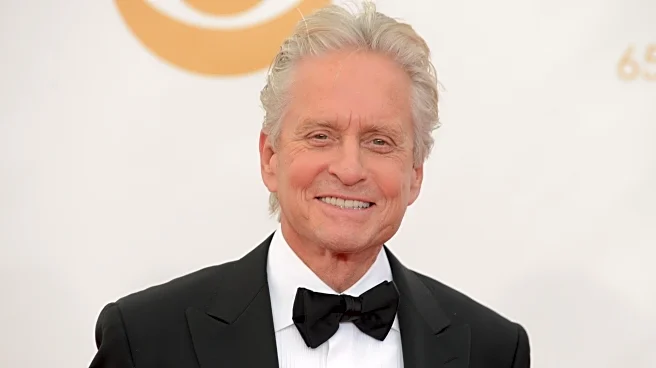Rapid Read • 8 min read
Secretary of Defense Pete Hegseth has initiated significant changes at the U.S. Naval Academy, including the removal of Vice Adm. Yvette Davids, the first female commanding officer in the academy's history. This decision is part of a broader effort by Hegseth to reshape the academy's leadership and address what he considers ideologically inappropriate materials. Vice Adm. Davids, who served for 18 months, is being reassigned to another high-ranking position, described as a lateral move. The administration has nominated a Marine Corps general to replace her, marking another first in the academy's leadership. Hegseth's actions have raised concerns, as the superintendent typically serves a three to four-year term.
AD
The removal of Vice Adm. Davids and other female leaders from military positions has sparked criticism and concerns about the direction of military leadership under Secretary Hegseth. His actions, including dismantling the Pentagon's Women, Peace and Security initiative, have been perceived as undermining efforts to increase women's roles in peacekeeping and conflict resolution. Critics argue that Hegseth's focus on eliminating diversity initiatives could have long-term implications for gender equality in the military. The reassignment of Davids and other female leaders may affect morale and the perception of inclusivity within the armed forces.
The nomination of a Marine Corps general to replace Vice Adm. Davids is pending, and the broader implications of Hegseth's leadership changes are yet to unfold. Stakeholders, including military personnel and advocacy groups, may respond to these developments, potentially influencing future policy decisions. The reassignment of Davids and the elimination of diversity-focused initiatives could lead to increased scrutiny and debate over the administration's priorities and the impact on military effectiveness and cohesion.
Hegseth's actions reflect a broader trend of prioritizing traditional military values over diversity and inclusion initiatives. This shift may have ethical and cultural implications, as it challenges efforts to create a more inclusive military environment. The removal of female leaders could signal a return to more conventional military practices, potentially affecting recruitment and retention of diverse talent. The long-term impact on military culture and gender dynamics remains uncertain.
AD
More Stories You Might Enjoy













